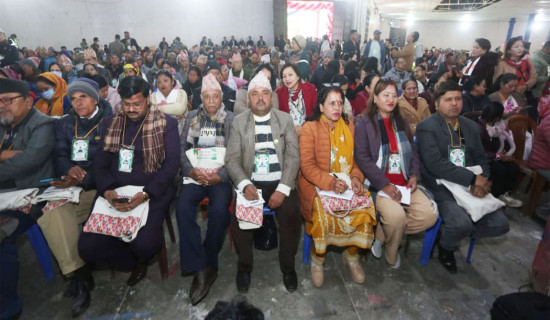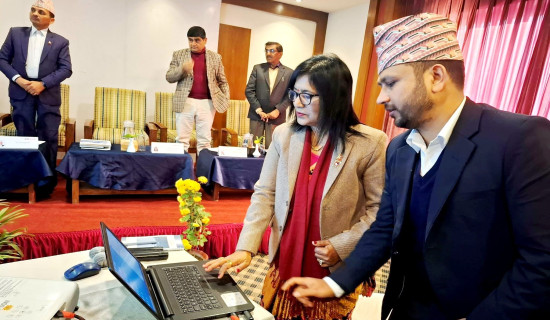- Monday, 12 January 2026
Nepal’s export sector suffers dent
By A Staff Reporter,Kathmandu, Oct. 2: Nepal continues to face significant challenges in its export sector, with total exports remaining dismally low.
Recent data indicates that the country's export revenue has not been sufficient to cover even its fuel imports, raising concerns about the sustainability of its trade balance.
According to trade statistics made public by the Department of Customs, the country has imported petroleum products, including petrol, diesel, kerosene, aviation fuel and liquefied petroleum products (LPG), worth about Rs. 37.47 billion from India during the first two months (mid-July to mid-August 2024) of the current fiscal year 2024/25.
This is about 50 per cent higher than the total exports of the country during the review period. The country exported goods only worth Rs. 25.09 billion during the first two months of the current fiscal year.
The exports have declined by 5.12 per cent during the first two months of the current fiscal year. During the review period, the country’s import has increased by 1.08 per cent to Rs. 262.54 billion.
Due to decline in export and increase in export, trade deficit has increased by 1.78 per cent to Rs. 237.44 billion during the first two months of the current fiscal year.
The share of petroleum products in the total import is highest among the other imported items. Its share in the total import during the review period is 14.27 per cent.
It shows that Nepal is spending a huge amount for the import and consumption of petroleum products.
Experts attribute this ongoing issue to a combination of factors, including limited industrial capacity, reliance on a narrow range of export products, and increased competition in regional markets.
Experts have emphasised the need for strategic initiatives to boost exports, such as enhancing product quality, diversifying export goods, and improving trade relationships with neighboring countries. However, tangible progress remains slow.
The import of petroleum products in terms of amount has slightly increased during the review period as compared to same period last fiscal year. Petroleum products worth Rs. 37.26 billion had been imported in the first two months of the last fiscal year.
During the review period, the import of petrol, diesel, aviation fuel and kerosene has decreased while the import of liquefied petroleum gas has increased.
Around 120,131 kilolitres (kl) of petrol worth Rs. 11.06 billion, 144,724 kl of diesel worth Rs. 13.64 billion and 27,809 kl aviation fuel worth Rs. 2.67 billion has been imported in the first two months of the current fiscal year.
The country had imported 112,182 kl of petrol worth Rs. 11.30 billion, 151,371 kl of diesel worth Rs. 15.74 billion and 27,276 kl of aviation fuel worth Rs. 2.76 billion in the first two months of the last fiscal year.
The import of cooking gas (LPG) has increased by about 29 per cent in the first two months of the current fiscal year as compared to same period last fiscal year.
About 88,538 tonnes of LPG worth Rs. 9.42 billion has been imported in the first two months of the current fiscal year. The country had imported 88,271 tonnes of LPG worth Rs. 7.32 billion in the first two months of the last fiscal year.
The growth rate of the consumption of petroleum products, including LPG and diesel has reduced over the years due to increase in the use of electric vehicles and electric stoves, said Purna Prasad Rijal, spokesperson at the Nepal Oil Corporation.
“As development and construction work accelerates in the country, diesel consumption tends to increase. At present, due to various reasons and more rains affecting development work, the import of diesel has decreased during the review period compared to the same period last year,” he said.
"With the improvement in the supply of electricity, the consumers are attracted towards the use of electric stoves which contributed to control in the growing demand for cooking gas," he said.
He further said that it was a must to promote the use of electric vehicles and electric stoves for increasing consumption of electricity in the country to save huge amounts of money to be spent for the import of fossil fuel.
The use of electric stoves and electric vehicles has also been increasing in the country over the last three years.




-(1)-square-thumb.jpg)





-(1)-original-thumb.jpg)






